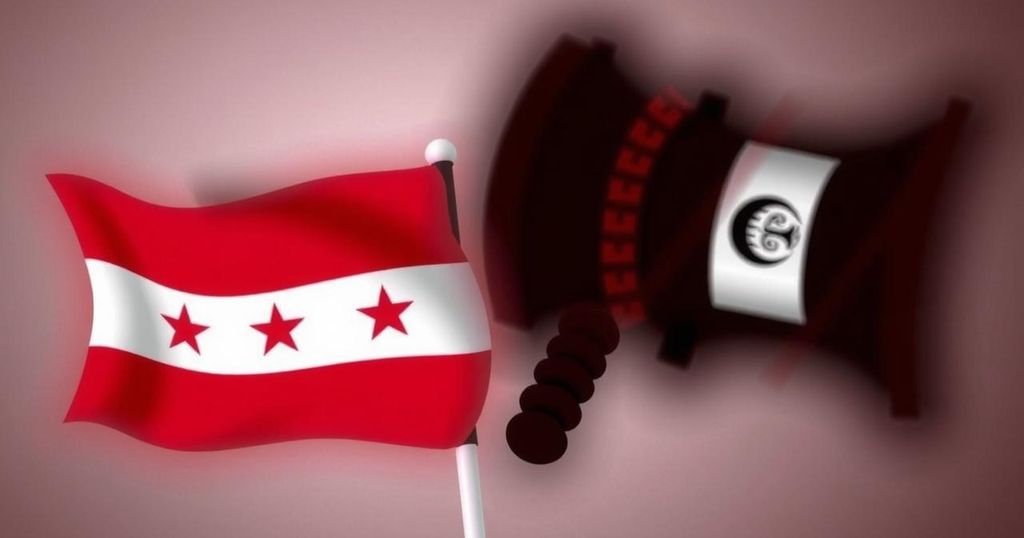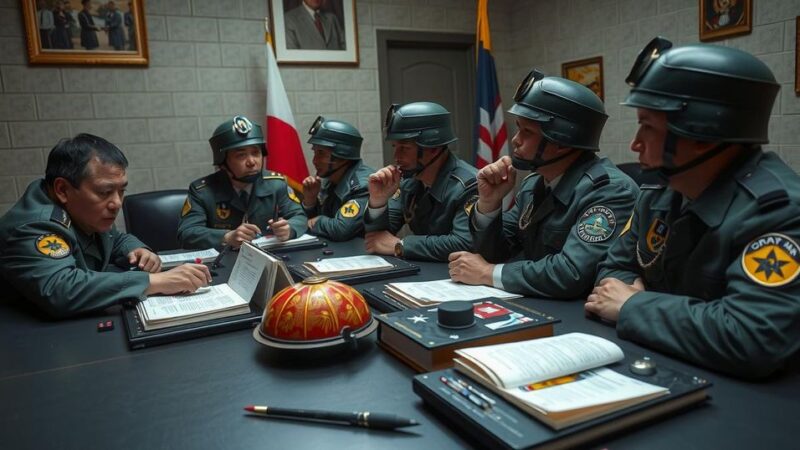Syria has categorically denied ongoing diplomatic talks with Iran about reopening embassies, contradicting statements by Iranian officials. A Syrian source confirmed no communication between the nations and indicated plans to file a $300 billion lawsuit against Iran for damages from its military involvement. This marks a significant shift in Syria’s foreign policy as it seeks accountability for Iran’s past actions that contributed to the ongoing crisis.
In a strong dismissal of recent Iranian claims, a Syrian official has emphatically denied any ongoing diplomatic engagements with Iran concerning the reopening of embassies in both capitals. This denial emerged in response to assertions by Iranian government spokesperson Fatemeh Mohajerani, who had reported on Tuesday that discussions were in progress to normalize diplomatic relations. The Syrian source, speaking anonymously to Al-Arabiya on December 24, stated unequivocally, “There has been no communication between the Syrian political administration and Iran, including diplomatic discussions about reopening embassies or consulates.” Furthermore, they emphasized that Syria’s new leadership has no intentions to establish diplomatic ties with Iran in the near future regarding an embassy in Damascus or a consulate in Aleppo.
Compounding the diplomatic disavowal, the Syrian government is reportedly preparing to initiate an international lawsuit against Iran, seeking $300 billion in reparations for damages attributed to Iran’s military support of the ousted Assad regime. The source indicated that this legal action aims to hold Iran accountable for the destruction inflicted upon Syria’s infrastructure and the systemic crimes against its population. The compensation claim is based on extensive documentation of the Iranian regime’s military involvement and its role in suppressing peaceful protests against the Assad regime during the civil conflict.
The legal pursuit aims to address the Iranian regime’s accountability for its so-called “criminal and oppressive policies” that have exacerbated human suffering and infrastructure damage in Syria. Among the actions cited are the deployment of military personnel and allied militias to reinforce the Assad administration throughout the ongoing civil war.
The conflicting narratives between different Iranian officials further complicate the situation, as Mohajerani’s assertions contrast with earlier comments from Iranian Foreign Ministry spokesperson Esmail Baqaei, who indicated limited contact with Syria’s new leadership. Baqaei noted Tehran’s interactions with various opposition groups but assured that there was no direct engagement with the present ruling powers in Damascus. Mohajerani’s statement during a press conference, asserting, “We are committed to diplomacy and are prepared for discussions. Talks are underway regarding the reopening of embassies,” underscores the inconsistency within Iran’s diplomatic messaging, further highlighting Tehran’s waning influence in the region.
The Syrian government’s explicit rejection of ties with Iran signifies a significant departure from the policies of the previous Assad regime. In pursuing reparations and distancing itself from Iran, Syria signals a noteworthy shift in its foreign policy direction, focusing on accountability and rebuilding efforts in the aftermath of the devastating conflict. This revelation reinforces the perception of the Iranian regime’s declining power in the Middle East as surrounding nations seek to hold Iran accountable for its past interventions, which have inflicted considerable harm. The future of Syria’s legal efforts against Iran and the international community’s reception to these claims remains uncertain, but Damascus has made it clear that Iran’s involvement in its turmoil will not be overlooked or absolved.
The dynamics of Iranian-Syrian relations have been contentious, particularly following the Syrian civil war, which saw Iran supporting the Assad regime through military and proxy forces. As new leadership emerges in Syria, there is a significant attempt to redefine this relationship, partially in response to the devastation caused during the conflict and the dire humanitarian and infrastructural consequences that ensued. This context reveals a shift in Syrian foreign policy, aiming for a more independent stance and accountability regarding foreign interventions.
In summary, Syria’s recent rejection of diplomatic ties with Iran, coupled with plans to seek substantial reparations, marks a crucial point in redefining its foreign relations post-civil war. This decision highlights Syria’s intent to hold Iran accountable for its involvement in exacerbating conflict and suffering. As the legal proceedings unfold, they may further illuminate the shifting landscape of Middle Eastern geopolitics and the effects of foreign interference on national sovereignty and rebuilding efforts.
Original Source: www.ncr-iran.org







